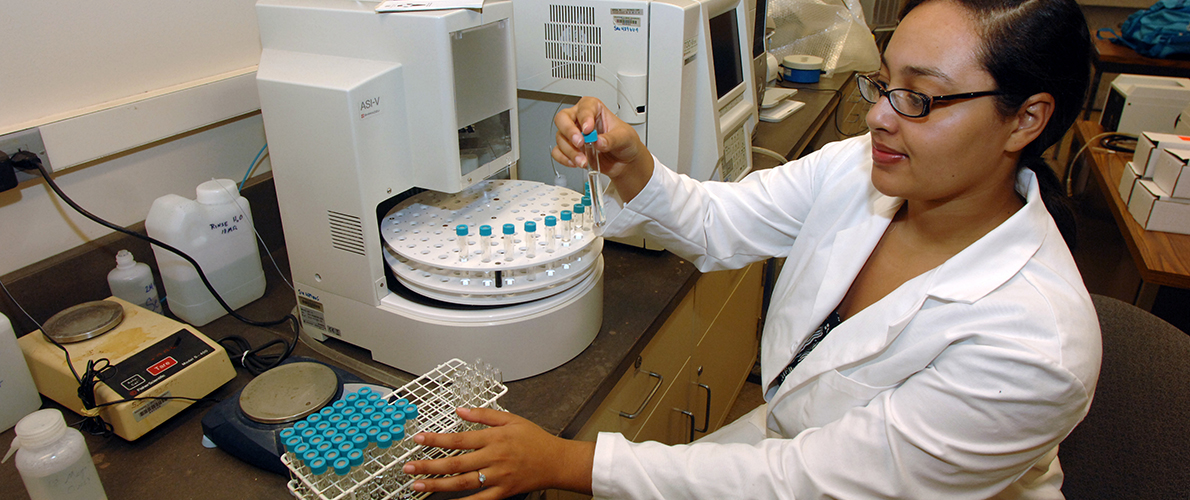Preparing for Graduate School
Main Content

Successful completion of the SI Bridges program will put you in a strong position to either pursue a career or apply for graduate school.
For some, the most sensible path is to work for a period of time to get experience and explore potential topics in their field that they want to study in greater depth in graduate school in the future. For others who already know that they want to investigate a particular topic, attending graduate school directly after receiving the bachelor's degree is the right choice.
Regardless of when you attend graduate school, obtaining a graduate degree (master's degree, Ph.D.) or professional degree (M.D.) will open up new opportunities in BBS fields that require a candidate to have more skills and knowledge, as well as the ability to handle greater responsibility.
QUALIFICATIONS FOR GRADUATE SCHOOL
Graduate programs typically look at the following characteristics
- GPA and overall academic record
- Scores on GRE (Graduate Record Examination)
- Letters of recommendation
- Research experience in faculty labs
- Volunteer experience
11 TIPS FOR GETTING INTO GRADUATE SCHOOL
- Plan early! It's wise to start 2+ years before graduation. Application deadlines may be as much as 9 months before the beginning of a graduate program, and it takes time to develop a strong record (e.g., taking appropriate courses, gaining research or other experience).
- Talk to the academic advisors and your instructors about your career goals and different types of graduate programs.
- Attend workshops on applying to graduate school offered by the Office of Academic Advisement and Career Services.
- Do your homework. Recognize that a wide range of graduate programs exist. Programs differ in their training goals (focus & orientation), level (MS, MA, PhD, etc.), and competitiveness. Your goal is to find the best program for you (i.e., for your interests, academic record, & abilities).
- Get good grades. If you're having difficulty in a course, meet with the instructor or TA during office hours to see how you might improve your grade. They may offer suggestions for study habits or test-taking skills.
- Study early for the GRE. If you're interested in starting graduate school the fall after you graduate, you need to apply to graduate schools late fall semester of your senior year. This means you need to take the GRE before that. You may want to start studying your junior year, but definitely by the summer before your senior year. To study for the GRE, you can take a class offered at the Sylvan Learning Center, or buy a book to study. To find study books and other helpful hints, check out the GRE Web site. In addition, practice tests and other resources to help you prepare for the GRE can be found at the ETS Web site. Computer testing has allowed more control over when you take the exam, but the subject tests may still need to be taken at infrequently scheduled sessions.
- Work on research projects with faculty. You can obtain course credit for this by signing up for research credit with your home department. Besides getting valuable research experience, this will also help you out when it comes time to get letters of recommendation. Faculty can write much better letters for you if they know you - your strengths, interests, etc.
- Gain volunteer experience in your field. The Center for Service Learning and Volunteerism has resources to help you.
- Get involved and be proactive! Meet with faculty during office hours. Get to know your classmates and form study sessions. Join the organizations affiliated with your home department.
- To get good letters of recommendation, get to know your instructors. Meet with them during office hours, even if it's just to introduce yourself. You can talk about your career plans and mention that you'd like to introduce yourself because you may need a letter of recommendation and you want to make sure they know you. Also, participate in class discussions, and ask questions. Meet faculty by assisting in their research projects or working in their research lab. It's generally a good idea to get at least two letters from academic sources (i.e., Professors).
- Discuss all of the above with your SI Bridges instructors because we can help to connect you with the resources you need to succeed!



